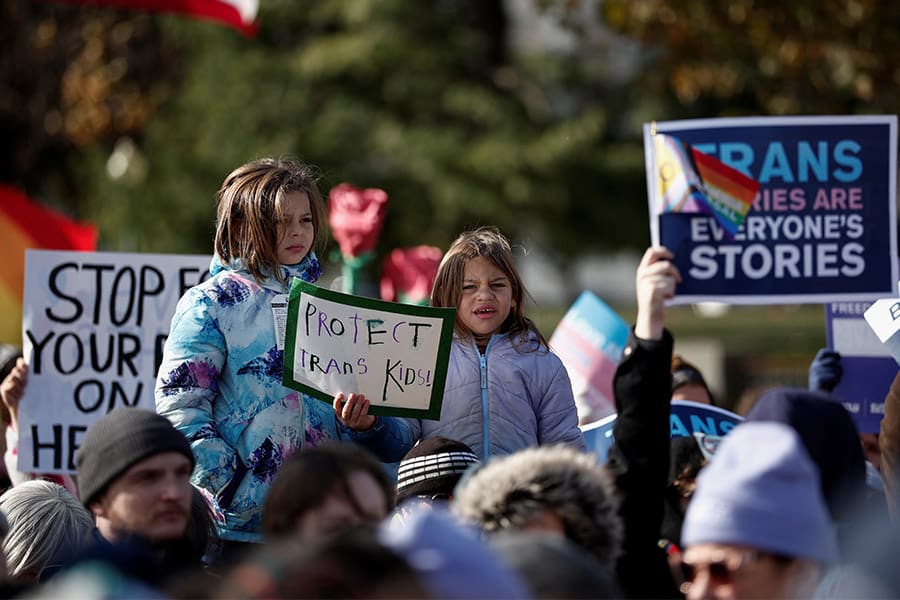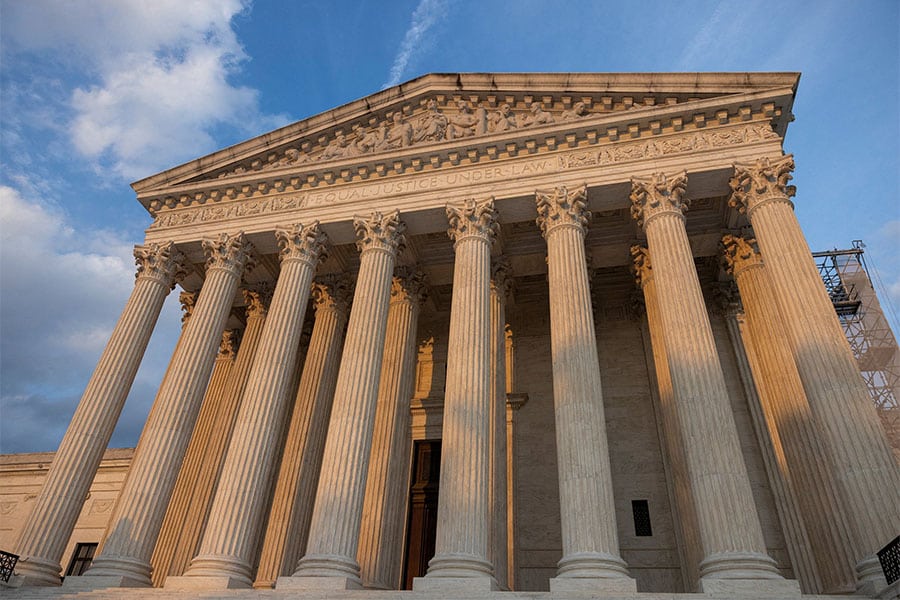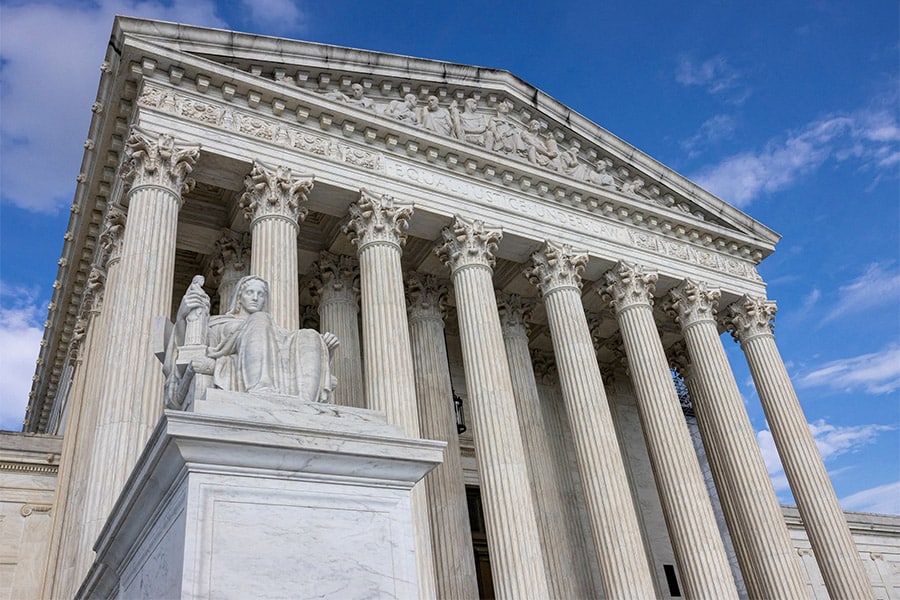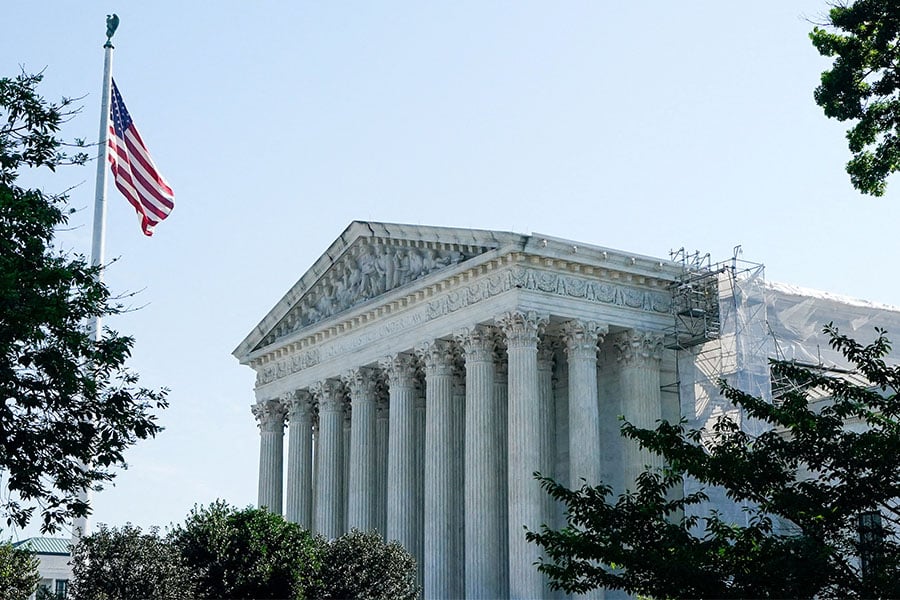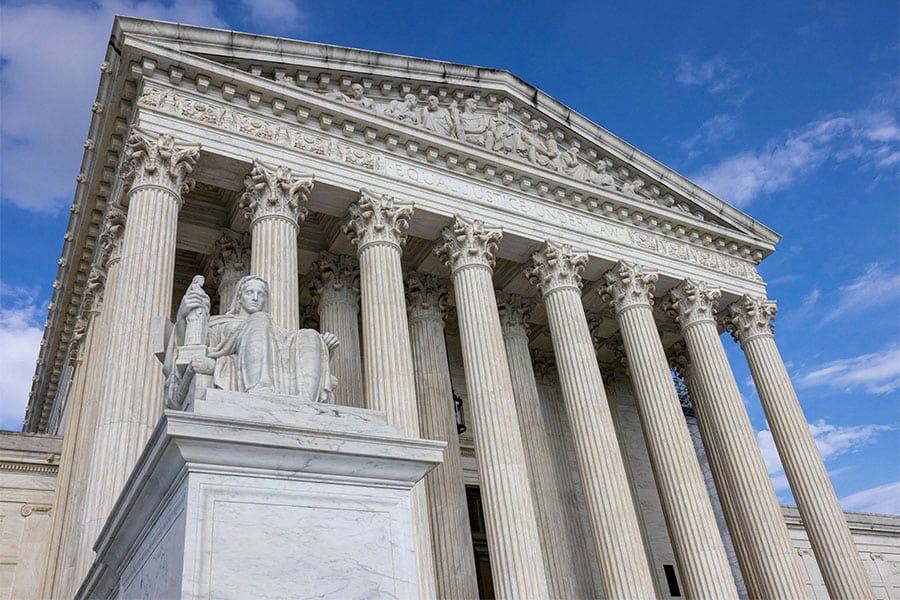WASHINGTON (OSV News) — The Supreme Court heard oral arguments Dec. 4 in a case concerning a challenge to a Tennessee state law banning certain types of medical or surgical gender reassignment procedures for minors who identify as transgender.
It’s the high court’s first major step toward weighing in on the controversial issue.
The question at issue in the case — United States v. Skrmetti, the Biden administration’s challenge to a law in Tennessee restricting gender transition treatments including puberty blockers for minors — is whether Tennessee’s law, Senate Bill 1, violates the equal protection clause of the 14th Amendment.
Arguments took place over about two and a half hours and were at times tense. Supporters and critics of the law protested outside the court.

U.S. Solicitor General Elizabeth Prelogar, who argued on behalf of the federal government, sparred with Justice Samuel Alito, who asked her whether she stands by her arguments that “these treatments have benefits that greatly outweigh the risks.”
“I, of course, acknowledge, Justice Alito that there is a lot of debate happening here and abroad about the proper model of delivery of this care and exactly when adolescents should receive it, and how to identify the adolescents for whom it would be helpful,” she said. “But I stand by that there is a consensus that these treatments can be medically necessary for some adolescents, and that’s true no matter what source you look at.”
How European countries have approached the issue was a frequent topic of argument. Earlier this year, England’s National Health Service, or NHS, announced it would no longer automatically prescribe puberty-suppressing hormones to child patients at its gender identity clinics. Other countries including Denmark, Finland, France, Norway and Sweden have also moved to limit such treatments or otherwise prevent overdiagnosis of gender dysphoria.
England’s move followed an interim report by Dr. Hilary Cass, a former president of the Royal College of Pediatrics and Child Health, whom the NHS appointed in 2020 to conduct an independent review of its gender identity services. The Cass report found “gaps in the evidence base” for puberty blockers, which arrest the onset of puberty by inhibiting sex hormones. Critics of that report argue it was politicized.
Alito said the government’s argument “relegated the Cass report to a footnote,” but Prelogar said that the report did not call for the outright ban of such treatments, and the United Kingdom did not enact such a ban.
Tennessee Solicitor General J. Matthew Rice, who argued on behalf of that state, said the equal protection clause “does not require the states to blind themselves to medical reality, or to treat unlike things the same.”
Rice sparred with Justice Sonia Sotomayor over the risks of such treatments. Rice argued the question of whether or not to administer medical or surgical gender reassignment procedures is a “pure exercise of weighing benefits versus risk, and the question of how many minors have to have their bodies irreparably harmed for unproven benefits.” Sotomayor cut in that “every medical treatment has a risk.”
American Civil Liberties Union lawyer Chase Strangio also argued on behalf of the original plaintiffs in the lawsuit, including transgender adolescents and their parents. Strangio is the first openly transgender lawyer to argue at the court.
In a notable exchange between Alito and Strangio, the justice pressed the lawyer on whether being transgender is an “immutable” condition, an important legal term meaning whether an aspect of a person’s identity is fundamental and unchangeable, and therefore protected under the equal protection clause.
Strangio argued, “The record shows that the discordance between a person’s birth, sex and gender identity has a strong biological basis and would satisfy an immutability test.” But later, Altio again pressed on whether being transgender would qualify as an immutable trait, citing those who begin and then either halt or reverse treatment for gender transitions.
“Are there not such people?” Alito asked.
“There are such people,” Strangio replied.
“So it’s not an immutable characteristic. Is it?” Alito said.
“Well, I think people’s understanding of it shifts, but the evidence shows that there is at least a strong underlying basis,” Strangio said.
Having two separate parties — the federal government and the ACLU — argue in the case means the challenge to Tennessee’s law would continue through the ACLU in the event the incoming Trump administration ended the Biden administration’s challenge after he takes office in January.
In another notable moment, Prelogar spoke more favorably of a West Virginia law regulating such treatments for minors. West Virginia first considered a law like Tennessee’s, she argued, but reversed course in favor of a law that established “a set of guardrails that are far more precisely tailored” than Tennessee’s law. West Virginia’s law restricting such treatments includes an exception for minors who are considered by doctors to be at risk for self-harm or suicide.
At least 25 Republican-led states have adopted laws restricting or banning gender reassignment surgery or related hormonal treatments for minors, although not all of those bans are currently in effect amid legal challenges, according to data from the Movement Advancement Project, an LGBTQ+ policy group. A ruling in United States v. Skrmetti could potentially have a significant impact on the future of those laws.
Supporters of prohibitions on gender transition surgeries or hormonal treatments for minors who identify as transgender say such restrictions will prevent them from making irreversible decisions as children that they may later come to regret as adults. Critics of such bans argue that preventing those interventions could cause other harm to minors, such as mental health issues or physical self-harm.
In guidance on health care policy and practices released in March 2023, the U.S. Conference of Catholic Bishops’ Committee on Doctrine outlined the church’s opposition to interventions that “involve the use of surgical or chemical techniques that aim to exchange the sex characteristics of a patient’s body for those of the opposite sex or for simulations thereof.”
“Any technological intervention that does not accord with the fundamental order of the human person as a unity of body and soul, including the sexual difference inscribed in the body, ultimately does not help but, rather, harms the human person,” the document states.
A 2022 study by the UCLA Williams Institute found that there are approximately 1.6 million people in the U.S. who identify as transgender, with nearly half of that population between the ages of 13 and 24.
Read More Supreme Court
Copyright © 2024 OSV News


